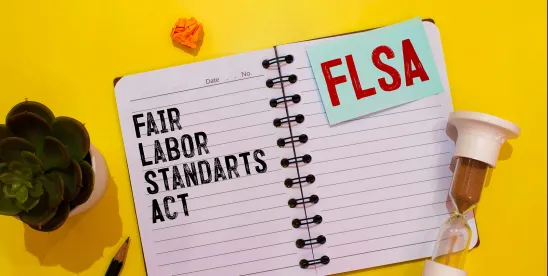As many employers are hiring summer staff, now is a good time to brush up on new developments in child labor, wage and hour, and workplace safety laws. These legal compliance matters may be particularly relevant to employers in the hospitality, retail, and tourism industries, since they tend to hire a lot of seasonal employees for the summer months.
Quick Hits
- Some states have changed their laws regulating child labor in the past two years.
- Overtime and minimum wage laws typically apply to part-time, seasonal workers.
- Seven states (California, Colorado, Maryland, Minnesota, Nevada, Oregon, and Washington) have a heat regulation for workplaces.
Child Labor Considerations
State laws vary on details like the number of hours minors are allowed to work per week, the nighttime hours permitted, and the definitions of hazardous work prohibited for minors.
In the past two years, some states have enacted more restrictive child labor laws, and other states have loosened child labor restrictions. Illinois increased limits on the hours that minors can work. Colorado, Nebraska, Oregon, and Virginia passed laws to heighten penalties on employers that violate existing child labor laws. Florida, Indiana, Iowa, New Hampshire, New Jersey, and Ohio loosened rules related to the hours that minors can work.
Wage and Hour Considerations
Many seasonal employees are hourly workers who qualify for overtime pay and minimum wage, which varies by state. However, the minimum wage and overtime provisions of the federal Fair Labor Standards Act (FLSA) do not apply if the employer is an amusement or recreational establishment that does not operate for more than seven months in any calendar year, or if the employer’s average receipts for any six months during the preceding calendar year were less than one-third of its average receipts for the other six months. Examples of this may include amusement parks, summer camps, and beachside concessions.
The FLSA does not require meal and rest breaks, but some states mandate meal and rest breaks that may be paid or unpaid, depending on the state.
Some employers partner with local universities to work with summer interns who receive academic credit for their work. These internships may be paid or unpaid, if the internship meets the “primary beneficiary test” under the FLSA, which generally requires the internship to provide training related to the academic program.
Workplace Safety Considerations
Summertime heat can pose health risks for workers, whether they work outside or inside. The federal government does not have a workplace safety regulation on heat, but the Occupational Safety and Health Act has a general duty clause that requires employers to provide a workplace free of hazards that could cause death or serious harm.
Some states have their own workplace heat standards. Nevada recently implemented a heat illness prevention regulation that applies to employers with more than ten employees. Likewise, California has a new heat illness prevention regulation for indoor workplaces.
Next Steps
Employers that have started summer hiring may want to consider:
- reviewing the state-level maximum hours and time-of-day restrictions applicable to minors;
- ensuring that tasks assigned to minors do not fall into the category of “hazardous” occupations, such as driving, cooking with hot oil, meat processing, and operating heavy machinery;
- keeping accurate records of minor employees’ dates of birth;
- keeping the employee manual and employee training materials up to date;
- clearly communicating that a worker is a full-time, part-time, or temporary employee;
- ensuring that seasonal workers are adequately trained in workplace safety and heat illness prevention; and
- ensuring that independent contractor agreements have been reviewed and updated, if plans include hiring independent contractors.




 />i
/>i
